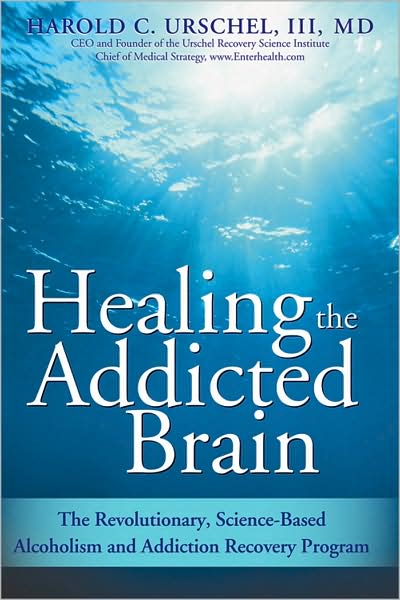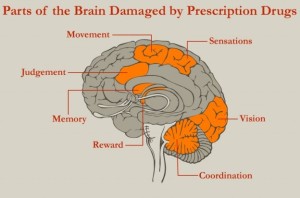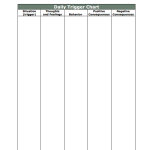
Healing The Addicted Brain, by Dr. Harold C. Urschel.
In a previous blog, I said that I would periodically highlight the main points of books or articles on recovery, spirituality, or self-growth that I have read and strongly endorse. Today, I will be discussing the book, Healing the Addicted Brain, by Dr. Harold C. Urschel.
This book is an excellent reference for individuals seeking to recover from drug addiction. It is easy to read, and provides excellent checklists and written exercises for people to work on. It has also provides many references to useful websites. The book may be too basic for experienced addiction clinicians, but it is organized in a way that could provide a simple structure for clinicians to use with their patients.
The book is organized into 12 main chapters:
- It’s a Disease
- Changing Your Thoughts from Pro-Addiction to Pro-Recovery
- Combatting Triggers and Cravings
- Medications to Initiate Recovery and Help Maintain Sobriety
- Your 12-Step Recovery Program
- Dealing with Difficult Emotions
- Dealing with Dual-Diagnosis
- The Recovering Family
- Lapse and Relapse
- Health and Nutrition in Recovery
- Regaining Enjoyment and Pleasure
- True Recovery – Maintaining Your Goals

Dr. Urschel states that although abuse of substances leads to physical damage to the brain, he suggests that repairing begins to occur between 6 months to a year of sobriety.
The book strongly emphasizes that substance use disorders are diseases of the brain needing medications to correct them. It clearly explains how abuse of substances leads to physical damage to the brain, with clear graphics of damaged brains due to substance abuse. He suggests that it takes 6 to 10 months of sobriety before significant brain repair can occur. He places a strong endorsement on using the new “anti-addiction” medicines to correct the problems of the brain. He also suggests that these medications enhance a person’s ability to focus on and benefit from talk therapy and 12-step programs.
Dr. Urschel discusses how the addicted brain is full of distorted and irrational thoughts that trigger “pro-addiction” behaviors, such as “I can’t get through this without a drink.”
He provides worksheets to assess one’s pro-addiction thoughts and develop healthier pro-recovery thoughts. He discusses the need to identify and deactivate triggers for drug use, and to have a plan in place to handle drug cravings. He provides a simple quiz to see how much one knows about cravings. He easily explains how triggers are “hardwired” into the brain, activating memory and dopamine circuits leading to drug cravings.
An example of one of these worksheets is to the left, entitled the Daily Trigger Chart, courtesy of Enter Health.
Dr. Urschel spends considerable time discussing the new addiction medicines, including Vivitrol and Campral for cutting back on alcohol intake. He goes into considerable detail on how these medications work to improve recovery success. He also discusses the medications most beneficial for those abusing alcohol, opioids, stimulants, sedatives, and marijuana. He does an inspiring job of promoting the effectiveness of these medications.
Another chapter explains the basic concepts of 12-step programs, the importance of sponsorship, 12-step “tips,” the types of AA meetings, and how to find meetings. Additional chapters include: dealing with difficult emotions, such as depression, anxiety, and anger; dealing with mental illness in addition to substance abuse; suggestions for the recovering family; ways of preparing for and dealing with lapses and relapses; the importance of health and nutrition in recovery; and the value of regaining enjoyment and pleasure while in recovery.
I fully endorse this book for individuals in early recovery and for those clinicians just entering the field of treating substance use disorders.
—
Blog written by Nicholas Lessa
Nicholas Lessa is the Clinical Director of Chat2Recovery, an online substance abuse treatment program, and Inter-Care, a leading substance abuse treatment program in New York City. He has been in the field of substance abuse treatment for over 30 years. He is the lead author of two books, Wiley’s Concise Guide to Mental Health: Substance Use Disorders and Living with Alcoholism and Drug Addiction. He can be reached at nlessa@chat2recovery.com.

